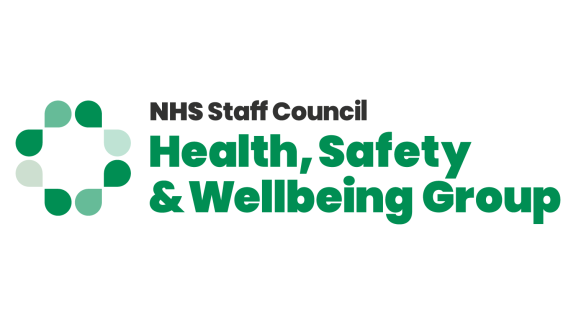Domestic abuse support

Samantha Whann and Kim Sunley are members of the Health, Safety and Wellbeing Group (HSWG). Samantha is a senior HR manager at Belfast Health and Social Care Trust. Kim is the Royal College of Nursing’s health, safety and wellbeing national officer and staff side chair of HSWG. In this blog, they discuss the importance of having a workplace policy and bespoke support for staff regarding domestic violence and sexual abuse.
Samantha Whann
At Belfast Health and Social Care Trust, we believe that domestic violence and sexual abuse is a workplace issue. It is something that can happen to anyone, regardless of their identity, their job, their rank, their gender, sexual orientation, age, race, religious belief, disability, etc. We are proud of our workplace policy, and the support and resources for staff that we co-developed and deliver in partnership with our trade union colleagues. We won the 2022 HPMA Awards: Partnership working category in recognition of our work.
Our volunteer support officers are trained by Women’s Aid, Nexus, Men’s Advisory Project, Rainbow Project, social services and the Police Service of Northern Ireland. This enables them to offer a compassionate and sensitive service to any colleague experiencing domestic violence or sexual abuse. The role of the support worker is to offer a listening ear, and to provide emotional and practical support in the workplace, and to signpost to specialist agencies.
Our organisational support and resources include:
- a dedicated workplace email and telephone number to access a support officer
- awareness sessions for staff and managers to highlight potential signs of abuse
- up to ten days paid leave off work if required
- paid time off for appointments, a salary advance or diverted into a new bank account, a personal safety alarm, change of location, change of working hours, safety arrangements in the workplace
- details of external support such as a weekly one-stop shop in Women’s Aid with all the respective agencies: housing, legal profession, benefits, social work, and community organisations
- posters and A4 calendars advertising the service with a specific logo – which is gender neutral to ensure that men will also avail of the support service
- 18000 printed copies of our A4 annual promotional calendar for our support service.
- an online domestic and sexual violence and abuse toolkit.
We firmly believe that our strong working partnerships with trade union colleagues are the backbone of our successful service. Many of our referrals or key contacts originate from union reps who are concerned for their members’ welfare. Local stewards are often a trusted, first confidante for many who experience abuse.
A recent case highlighted this when a staff member who is a single mother with young children from an ethnically diverse group moved to Northern Ireland following the breakdown of her abusive marriage. The individual confided in the coordinators of the support service that she had experienced domestic violence and honour-based abuse during the marriage and that her ex-husband had been continually stalking and harassing her and it was having a significant impact on her mental and physical health and that of her children too. This abuse was being perpetuated into the workplace with threats and a potential attack in the workplace. As a result, a multi-disciplinary approach to her individual circumstances was agreed with her, the support services, management, HR, the trust security team and local police to implement a range of practical measures including, paid leave, change of office location, hybrid working, different start and finish times, a security alarm and measures for the team based in the same offices to prevent any unauthorised entry.
HR arranged for fast-track psychology support from occupational health enabling the individual to openly share and discuss the impact of the abuse on their life and assist her recovery and healing process. The staff member stated: “The support I received from the trust gave me a new lease of life. I’d like to encourage others to reach out and speak out as after many years of abuse and suffering on my own in secret, life is now worth living.”
Kim Sunley
It is great to see an organisation doing so much to support staff experiencing domestic abuse. A partnership approach between trade unions and management is also really welcomed and that’s what we advocate for on the NHS Staff Council’s Health, Safety and Wellbeing Group.
In 2017, employer and trade union representatives of the group worked together to develop our national guidance Domestic violence and abuse: supporting NHS staff. This guidance has been recently updated and aims to encourage NHS organisations to recognise domestic abuse as a workplace concern along with a checklist of issues for organisations to consider when developing policies. As we enter the 16 days of activism on violence against women we’re encouraging managers, HR professionals and trade union representatives working in the NHS to read our resource and take the time to review what your organisation is doing to support staff and members who may be experiencing domestic abuse. Let’s follow the lead of Belfast HSC Trust; as employers and trade unions we can all play our part.
If you work in health and safety within the NHS and would like to be involved with the HSWG please email the NHS Employers health and wellbeing team.
Find further HSWG resources to support you in your organisation.



